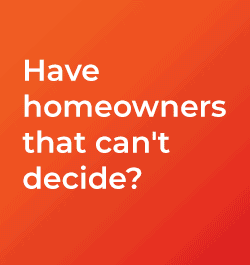Emerging code trends from the Single Ply Roofing Industry Winter Meeting
February 16, 2025 at 3:00 a.m.By Heidi J. Ellsworth.
Amanda Hickman of The Hickman Group shares insights for 2025.
As the roofing industry evolves, so too do the codes and standards that govern them. Amanda Hickman, a codes expert from The Hickman Group and consultant to the Single Ply Roofing Industry (SPRI), has been at the forefront of analyzing these trends, providing valuable insights into how they will shape the future of the built environment. Here are some key trends that are making waves in 2025 and beyond.
1 - Changes to ICC Code development process and cost impact
The International Code Council (ICC) continues to refine its code development process. These changes are aimed at improving the code update process while considering the cost implications for stakeholders. The evolving process underscores the importance of collaboration between industry professionals, policymakers and code officials to balance innovation with practicality.
2 - Resiliency initiatives
SPRI has an ongoing resiliency task team that focuses on preparing buildings to withstand natural disasters and climate-related challenges. This initiative, supported by resources such as www.globalresiliency.org, aims to provide guidance and tools to enhance the durability and adaptability of structures. Resiliency is no longer optional; it is becoming a cornerstone of modern building practices.
3 - Air leakage control
As energy efficiency takes center stage, reducing air leakage has become a critical focus. Proper sealing and insulation not only improve energy performance but also enhance occupant comfort. Stricter codes are being introduced to ensure tighter building envelopes, reducing unnecessary energy loss.
4 - Addressing thermal bridging
Thermal bridging — where heat escapes through materials with poor insulation properties — is another area of concern. Enhanced building codes are pushing for innovative solutions to minimize these energy losses, which can significantly impact heating and cooling efficiency.
5 - Renewables: PV and electrification
The integration of renewable energy, particularly photovoltaic (PV) systems, is being emphasized in building codes. Electrification is also gaining traction, with more buildings being designed to support electric systems over fossil fuel-based options. This shift supports global decarbonization goals and aligns with sustainability objectives. Roofs that can handle the increased loads are essential for this trend.
6 - Existing buildings: Roof recover, replacement and alterations
Codes are increasingly addressing existing structures, particularly in the context of roof recover, replacement and alterations. The aim is to ensure that modifications meet modern standards for safety, energy efficiency and functionality while maintaining cost-effectiveness for building owners.
7 - Decarbonization and embodied energy
Decarbonization efforts are moving beyond operational energy use to include embodied energy — the total energy consumed during the production and construction of materials. New codes emphasize the need for sustainable materials and practices to reduce the carbon footprint of buildings throughout their lifecycle.
8 - Energy credits and performance options
Energy credits and performance-based options are becoming more prominent in building codes. These frameworks incentivize innovative approaches to achieving energy efficiency and sustainability goals. Stringency is expected to increase, encouraging industry leaders to adopt advanced technologies and practices.
9 - Occupiable roofs, blue roofs and rooftop solar
Rooftops are being reimagined as multifunctional spaces. Occupiable roofs provide additional usable areas, while blue roofs — designed for water storage — help manage stormwater. Rooftop solar installations continue to gain traction, further integrating sustainability into urban landscapes.
10 - Tornado provisions
In response to increasing severe weather events, tornado provisions are being incorporated into codes to enhance building resilience. These measures include structural reinforcements and design standards to better protect occupants during extreme weather.
11 - Increasing variations in state-level codes
While federal and international standards provide overarching guidance, state-level codes are becoming more varied. This trend reflects the need to address regional priorities, such as specific climate conditions or local risks. However, it also creates challenges for consistency and compliance across jurisdictions.
Looking ahead
As Amanda Hickman emphasized, these trends highlight the growing complexity and importance of building codes in shaping a sustainable, resilient future. Industry professionals must stay informed and adaptable, leveraging these evolving standards to meet both environmental and societal demands. SPRI is committed to proactively addressing these trends. They are focused on working with the building industry to innovate while ensuring safety, efficiency and sustainability for generations to come.
Learn more about SPRI in their Coffee Shop Directory or visit www.spri.org.
About Heidi
Heidi is the president of The Coffee Shops. She is very involved with roofing associations and helped launch the Roofing Technology Think Tank (RT3) and National Women in Roofing. When she isn't working she likes going for walks and playing cribbage.
Recommended For You

MRA Shares Cautionary Tale for Homeowners Seeking to Repair and Rebuild After Harsh 2022 Hurricane Season
Read More ...
DuPont™ Tyvek® Protec™ Roofing Underlayments Debuted at 2017 International Roofing Expo
Read More ...
SPRI announces updates to 2025 RD-1 Performance Standard for retrofit drains
Read More ...




















Comments
Leave a Reply
Have an account? Login to leave a comment!
Sign In